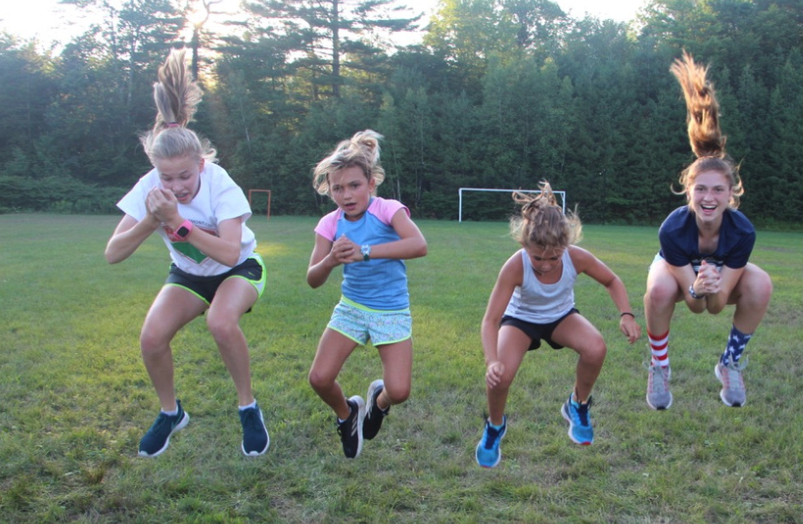
Summer is an important time for athletes, of all ages, to make gains both physically and mentally. Whether you’re a World Cup ski racer or a junior hockey player, the summer months provide an excellent opportunity to get tougher, stronger, fitter, faster! Doing so will set the stage for every athlete to jump to a new level of performance when the next competition season arrives. Below are a variety of elements to consider when planning your summer training, along with some tips to make every session count.
From our years of training and pursuing our ski racing dreams, to our time spent as coaches at ELITEAM’s summer camps over the past 28 years, there are a few things we’ve learned along the way! Below is a list of factors we believe every athlete and coach should have on their mind in order to build a solid and successful summer training plan, stay motivated and enjoy the journey. These are all things we strive to do at our own summer camps and are exactly the elements we used when designing our new Dig Deep Online Summer Training Program. We have found this approach to be a recipe for success, so no matter what program you follow this summer, look to incorporate these tips!
Training Tips
- Systematic Approach-
- A summer training program should build week to week, and month to month. Start by building a strong athletic base, then go from there.
- Well Rounded-
- It’s not just about the workouts! It’s critical for athletes to practice their mental skills and learn about proper sports nutrition too.
- The Workouts-
- Be sure to hit power, strength, capacity, agility, balance, coordination and core. (More on the importance of power, strength and capacity below.)
- Introduce New Movements-
- Try new sports and activities. How about archery, rock climbing, juggling?!
- Safety-
- Young athletes do not tolerate heat well. Vigorous exercise in hot, humid weather should be restricted to 30 minutes or less, including frequent rest periods.
- Stay Active-
- On the days with no scheduled workouts, get outside and stay active.
- Rest-
- Sleep is essential and rest days are very important. If you’re tired, take a rest day. Let your body repair and recover. (On the other hand, if you’re just being lazy, drag yourself out the door!)
- Work on your Weaknesses-
- Evaluate your needs. What areas need improvement? (Physical, mental or nutritional.) Here’s your chance to work on those things.
- Push Yourself-
- Challenge yourself. Dig Deep! Crank out a few extra reps or sets.
- Proper Form & Technique-
- To engage the targeted muscles, proper form is essential. Improper form can increase an athletes’s risk of injuries and muscle imbalances, so pay attention to technique.
- Be Creative-
- Use a rock, make up an obstacle course in your backyard, add the element of timing, incorporate balance training into your strength/power workouts, add mental challenges to the exercises (ex: recite the alphabet backwards while holding a tuck).
- Be Consistent-
- Consistency is key. It’s ok if you miss a workout or two, but the key to making gains is to keep at it consistently… every day, every week, every month. Be patient and think long term. This is a process that takes time.
- Grab a Partner-
- When possible, train with a buddy. When you workout with a friend, teammate or sibling you can cheer each other on and push each other to dig a little deeper.
- Have Fun-
- Hard work is important, but above all, have fun!!! Inject your training days with excitement, challenges, smiles and fun.
Power, Strength & Capacity
What is Power?
Powerful athletes always have an edge – they can cut quicker, sprint faster, turn sharper, and jump higher. The good news is that power can be developed, no matter your age, sport, or training history. Training power teaches the body how to produce and absorb force rapidly, which translates into better performance, no matter the sport.
What is Strength?
While many sports have obvious examples of strength, like American football, every single sport requires strength to some degree. Strength development is massively important in performance at every level, and strength training is shown in research to be the most important factor in preventing injury for athletes. Strength allows athletes to overcome the demands of their sport time and time again, whether they’re absorbing it from another athlete or producing it against the ground.
What is Capacity?
An athlete’s capacity is his or her ability to handle high workloads and large training volumes, which result in increased fitness and higher skill development. Fitter athletes can practice longer, can play harder, and can perform at higher levels while delaying fatigue. The development of an athlete’s capacity is critical in growing in their skills, whether in a fitness-dominant sport or a more technical sport.

